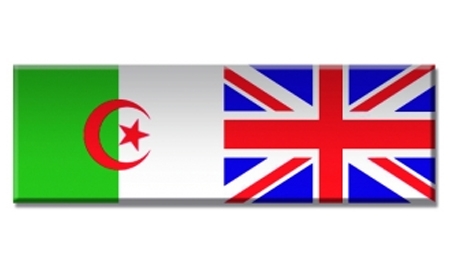
Official relations of friendship and co-operation between the United Kingdom and Algeria got their start in the late 16th century thanks to the interest that British tradesmen had in the North African Market
Over the next few centuries, relations warmed and cooled yet were never broken altogether, and by the 18th century many British writers, artists, travellers and explorers were beckoned to the Mediterranean country by its exotic deserts, warm and dry climate, Roman ruins and stunning coastline.
Algeria in the 19th century saw an influx of “wintering” British tourists who, in seeking respite from the cold of the North Atlantic, found in Algeria a balmy and safe sanctuary.
After independence, Algerian-UK relations strengthened, especially in terms of trade. British Gas, for example, in 1964 became the first customer of Algerian liquefied natural gas (LNG) and by the 1970s, UK companies were among those providing the machinery, equipment and technological expertise to spur the Algerian industrial expansion.
Since Her Majesty Queen Elizabeth II made an official visit to Algiers in late October 1980 and up until fairly recently, little had been done to reinforce UK-Algerian affairs. All of this changed in 2006 when Algerian President Bouteflika travelled to London thus creating greater visibility and awareness of Algeria in the United Kingdom.
According to the Algerian Ambassador to the UK, Amar Abba, various mechanisms were put in place for enhancing co-operation between the two nations, including the establishment of the UK-Algeria Joint Committee on Bilateral Relations. This committee meets once a year, alternating between London and Algiers, to discuss political, economic, educational, cultural and international issues of common interest. Since 2006, several agreements in the field of judicial and consular cooperation have been signed, in addition to the 2009 signing of an agreement on defence co-operation.
The Algerian government is eager to diversify away from oil and gas, the de facto dominating sector in foreign trade, and encourages British investors to get involved. The $286 billion Algerian Public Investment Programme presents numerous possibilities for “win-win synergies between the UK and Algeria”, says Ambassador Abba, as it is aimed at “all types of infrastructure related to roads, ports, dams, transport, education, health, housing, industry, agriculture, services and tourism. In short, Algeria is a gigantic workshop.”
Mr Abba highlights that British investors may be interested in the sectors of vocational training, financial services, energy, pharmaceuticals, the space industry, agriculture and tourism.
Although both countries were keen on doing business, bilateral trade did suffer in the 1990s as a result of terrorism. The democratic government of President Bouteflika is taking important measures to change the negative perception his country was, unfortunately, suffering in the recent years.
Martyn Roper, UK Ambassador to Algeria, admits that there “are some outdated perceptions amongst British business people about Algeria, which has meant they have tended to look elsewhere. That is changing and UK companies are increasingly looking at Algeria as an opportunity…Cooperation is mutually beneficial and will support Algeria’s development by creating jobs and transferring know-how and skills.”
According to H.E Amar Abba, “the volume of bilateral trade has registered a remarkable expansion during the recent years, doubling in value from 2010 to 2011, passing from £1 to £ 2 billion, the equivalent of USD 3.3 billion. This growth illustrates the thriving relation between our two countries. We must deepen this trend for the benefit of our two people.”
1 COMMENT
I would be interested to know which British artists painted in Algeria towards the end of the 19th Century in the light of some very competent unsigned watercolours of Algerian scenes which I bought from a dealer recently. Is there a list compiled anywhere?